
Master of the Rolls Geoffrey Vos exposed cheating justice
November 6, 2025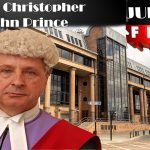
The tyranny of Newcastle Crown Court lies by Judge Prince
November 10, 2025- Clerk to Mr Justice Eyre
- Corrupt UK High Court Judges
- Guido Fawkes
- High Court corruption
- Interim declaratory relief
- Judicial Hall of Shame
- Judicial Office
- King's Bench Division corruption
- King's Bench High Court Judges List
- King's Bench Judges Clerks
- Lady Justice Andrews
- Lord Hutton in Darker v Chief Constable of the West Midlands Police [2001] 1 A.C. 435
- Manchester Civil Justice Centre
- Martin Walsh
- Mr Justice Eyre
- Mr Justice Fancourt
- Mr Justice Leech
- President of the King's Bench Division
- Sprecher Grier Halberstam LLP v Walsh [2008] EWCA Civ 1324
- Staines v Walsh
- Stephen Eyre KC
- Walsh v Staines
- Watson v M'Ewan [1905] AC 480
Table of Contents
ToggleKing's High Court Judge Mr Justice Eyre's affront to the law
Stephen John Arthur Eyre KC (born 17 October 1957), styled Mr Justice Eyre, originates from Manchester Civil Justice Centre, a Judge of the Northern Circuit, intimately connected with other judges who are subjects of our Firm’s 5-year investigation.
An “affront to the law” / affront to justice, means a deliberate insult offence against the statutory law, and this is in fact by a judge paid by the taxpayer to administer those laws.
Such an ‘”affront to the law’ broadly describes acts that undermine the rule of law, such as ignoring due process, tampering with evidence, or a prosecution being so unfair it offends the court’s conscience. It’s a term used when legal or judicial processes are perceived as unjust, biased, and or a perversion of justice.
It happened in our case when we took the government to Court
On 15 June 2022 this firm first took the government to Court alleging fraud and corruption. Ever since, none of the crucial points at issue we have put forward, have ever been touched on once, even though every witness statement, application, claim and proceeding has been all about those points.
We expose a blatant breach of judicial oath by Mr Justice Eyre, a High Court Judge of the King’s Bench Division on 30 April 2025, in our case against the Government.
Alleged treasonous conduct by Mr Justice Eyre in wilfully breaching his judicial oath and affirmation to His Majesty King Charles III
“I, Stephen John Arthur Eyre, do swear that I will be faithful and bear true allegiance to His Majesty King Charles III, his heirs and successors, according to law. So help me God.
“I, Stephen John Arthur Eyre, do swear that I will well and truly serve King Charles III in the office of High Court Judge , and I will do right to all manner of people after the laws and usages of this realm, without fear or favour, affection or illwill. So help me God.
Affronting the statutory law and deliberately denying justice as we expose Mr Justice Eyre to have done in this short conclusive article, irrefutably proves the breach beyond doubt. Why is he still there?
Our declaratory judgment application before Mr Justice Eyre in the King’s Bench Division
On 21 April 2025 we applied to the High Court King’s Bench Division for interim declaratory relief, a standalone declaratory judgment pursuant to Rule 40.20 of the Civil Procedure Rules (“CPR”).
Rule 40.20 provides jurisdiction for a court to issue a binding declaratory judgment used to determine legal rights, usually when there is a need where justice would not be done without it. The rule allows the court to provide clarity on legal issues and make declarations without having to award damages or other forms of relief.
Here’s CPR 40.20:
“Declaratory Judgments
40.20 The court may make binding declarations whether or not any other remedy is claimed.”

Overwhelming need in the interests of justice – Absolute witness immunity from suit
The declaratory relief is based on the well-settled doctrine of witness immunity from suit and the protection of witnesses from civil action arising from the evidence and facts they have first given as a witness in a court proceeding or police investigation.
Our declaratory relief is in relation to the fact we propose that Mr Millinder, who has had a series of civil restraint orders and then a permanent civil restraint order made against him (allegedly to conceal fraud and other wrongdoing) has been absolutely immune from civil suit since 9 January 2017.
It was alleged that the evidence and crucial facts he had first given as a witness to Cleveland Police and Northumbria in relation to fraud allegations, were then concealed and suppressed by the civil courts, who imposed restraint orders maliciously and unlawfully intending to permanently suppress those important facts and evidence.
The police failed to properly investigate, passing it off as a civil fraud, and that ‘our lawyer does not see this as a new head of fraud‘.
What the House of Lords says about witness immunity
In the 2008 case, Sprecher Grier Halberstam LLP v Walsh [2008] EWCA Civ 1324, this firm’s Managing Director, Martin Walsh, was prevented from civilly prosecuting the political blogger, Paul Staines, AKA Guido Fawkes when his lawyers, Sprecher Grier Halberstam said that because Mr Staines had given evidence in proceedings brought by Mr Walsh against Mr Staine’s lawyers, Mr Staines was absolutely immune from suit and could not be civilly penalised.
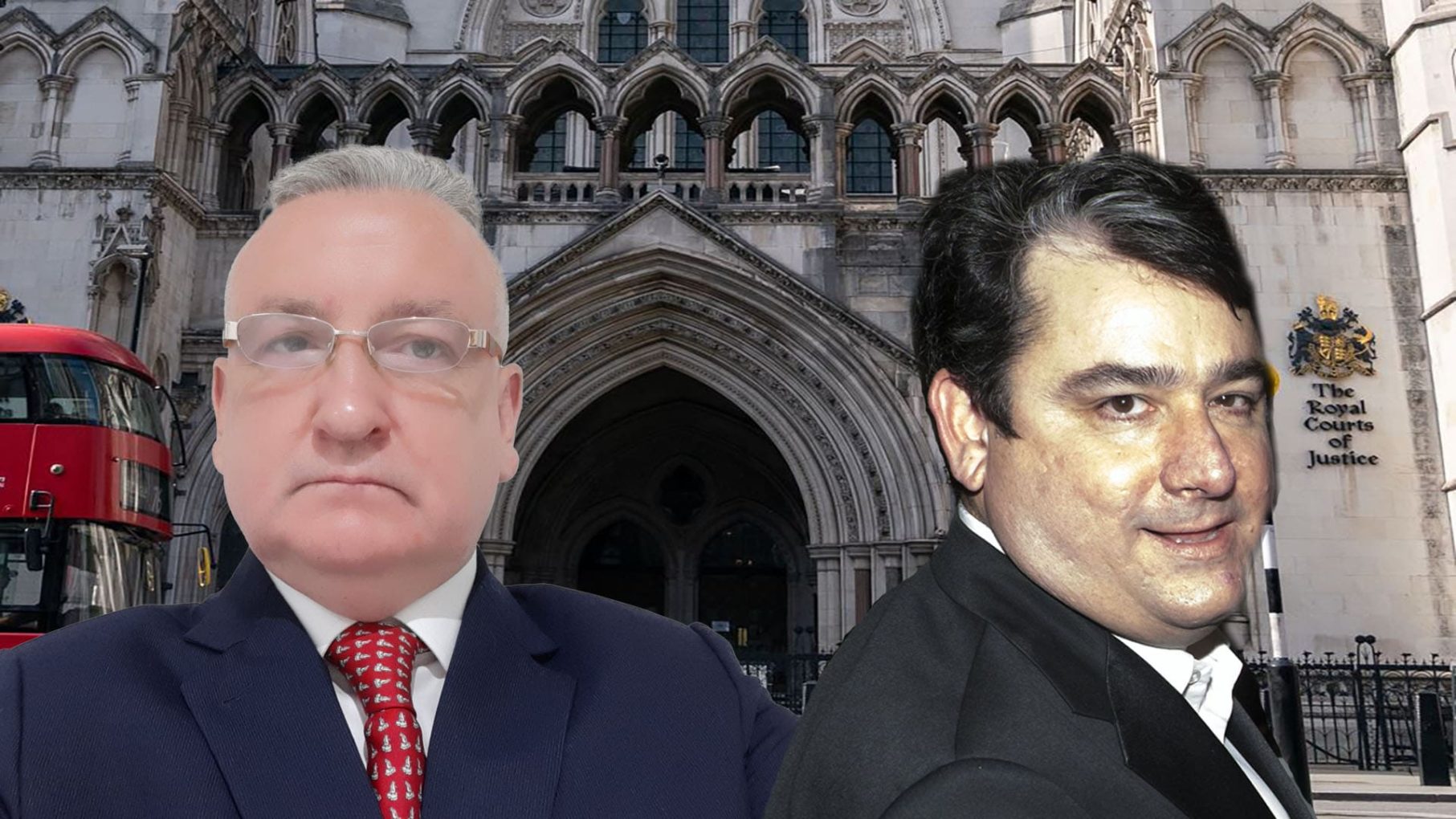
It appears that Mr Justice Eyre decided that law and justice does not apply in this case, an act he obviously had no jurisdiction to pull off.
What’s good for the goose, must also be good for the gander. The same applies to Mr Millinder and the automatically void civil restraint orders that unlawfully trespass on his privilege of absolute immunity from suit.
From the 2008 judgment, we recite what Staines and Sprecher Grier Halberstam relied on in freeing Staines from civil contempt proceedings by the House of Lords:
In the House of Lords final judgment, Watson v M’Ewan [1905] AC 480, the Earl of Halsbury LC said this:
“By complete authority, including the authority of this House, it has been decided that the privilege of a witness, the immunity from responsibility in an action when evidence has been given by him in a court of justice, is too well established now to be shaken. Practically I may say that in my view it is absolutely unarguable – it is settled law and cannot be doubted. The remedy against a witness who has given evidence which is false and injurious to another is to indict him for perjury; but for very obvious reasons, the conduct of legal procedure by courts of justice, with the necessity of compelling witnesses to attend, involves as one of the necessities of the administration of justice the immunity of witnesses from actions being brought against them in respect of evidence they have given. So far the matter, I think, is too plain for argument.”
In the 2008 Sprecher Grier v Walsh Court of Appeal judgment, this was relied on:
A more modern exposition of the rationale for the rule is given by Lord Hutton in Darker v Chief Constable of the West Midlands Police [2001] 1 A.C. 435, 464:
“… in order to shield honest witnesses from the vexation of having to defend actions against them and to rebut an allegation that they were actuated by malice the courts have decided that it is necessary to grant absolute immunity to witnesses in respect of their words in court even though this means that the shield covers the malicious and dishonest witness as well as the honest one.”
He added at p. 468:
“Furthermore, the authorities make it clear … that where the immunity exists it is given to those who deliberately and maliciously make false statements; the immunity is not lost because of the wickedness of the person who claims immunity.”
Staines evaded justice by relying on the doctrine of witness immunity in 2008, yet Mr Millinder was sentenced to prison for 15-months after the courts concealed the evidence and facts he had first given as a witness after the Attorney General, Victoria Prentis KC MP, instigated a civil committal claim against him alleging he was in contempt of court in relation to the evidence he had first given.
Consequentially, it does not take a law professor to establish that there was and is ‘a high degree of assurance’ that we are entitled to the standalone CPR 40.20 declaratory judgment we applied for.
The reasons in the interests of justice and on the public interest point of legal principle in the standalone declaratory relief we applied for is also, ‘too plain for argument’
We even provided the properly reasoned 16-page draft judgment with reasoning and after serving the Government Legal Department and the other defendants, they just failed to respond. We believe they knew what was coming.
Mr Justice Eyre of the King’s Bench Division affronted the law to deny justice
On 30 April 2025, Mr Justice Eyre of the King’s Bench Division made the order we exhibit which told us then that they planned to bypass / suppress the application to assist the Defendants in evading justice and by denying it at the same time.
At paragraph 4, Eyre J directly affronted the statutory rule to deny the standalone relief that the rule provides for, he said this:
“If permission to appeal is refused then the application will fall away with the appeal. It follows that consideration of the application in advance of the question of the grant or refusal of permission would be premature“
An obvious non-judicial act without jurisdiction.
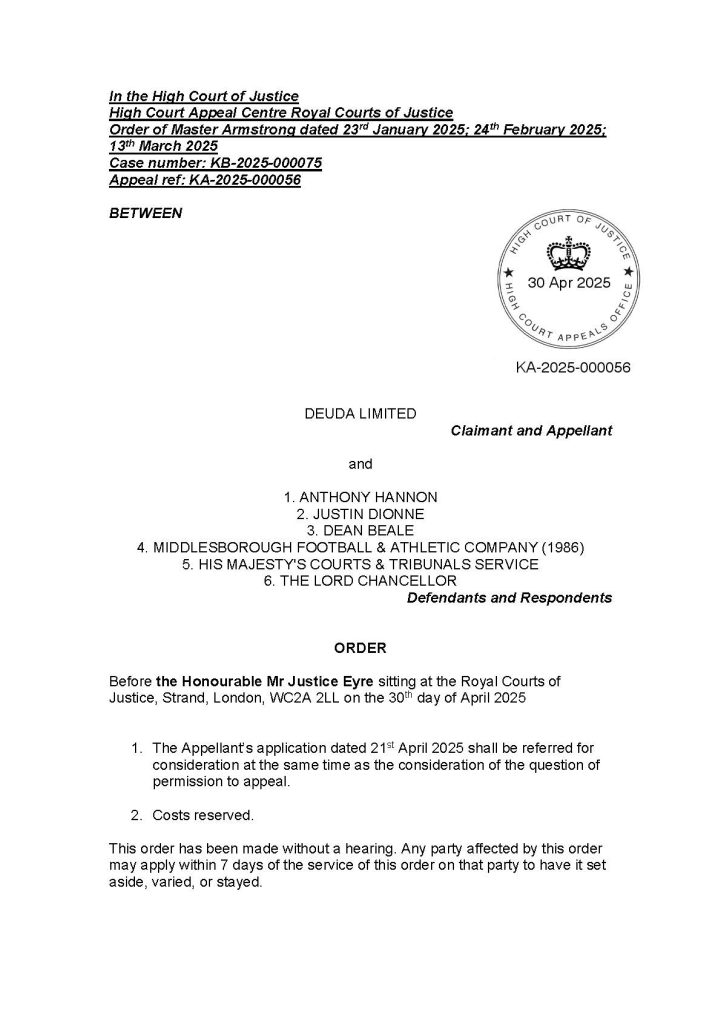
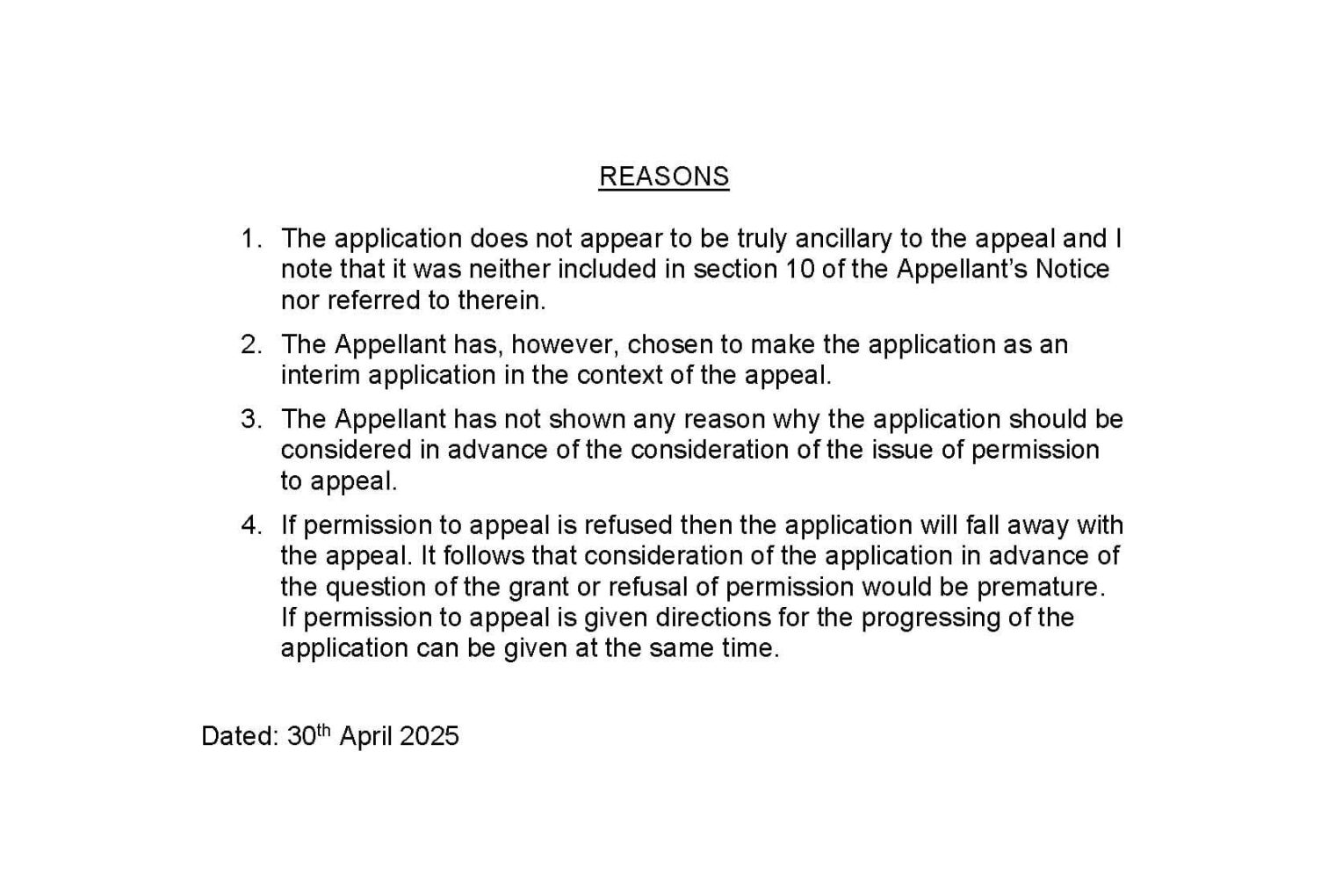
An act intended to pervert? But most certainly, a contemptuous without jurisdiction act by Mr Justice Eyre, affronting the law they appear in many cases to deliberately no longer administer.
Due to the outrageous affront to the law and concealment by Mr Justice Eyre and others in the King’s Bench and Chancery Division of the High Court in England and Wales, we have applied to stay the corrupted UK proceedings.
We are now bringing the declaratory case in a constitutionally proper and jurisdictionally independent court in Hong Kong, People’s Republic of China where they can’t continue acting as “judges of their own cause“.
Our recent series of articles published in the public interest expose serious corruption and dishonesty throughout the courts of the civil and criminal justice system of England and Wales.
Mr Justice Eyre, the King’s Bench Division and President, the Judicial Conduct Investigations Office, the Lord Chancellor, PM’s Anti-Corruption Champion, police and shadow Justice Minister have been invited to comment.
Help us to help you, share far and wide. Please consider a donation in support of our fight for justice and just governance.


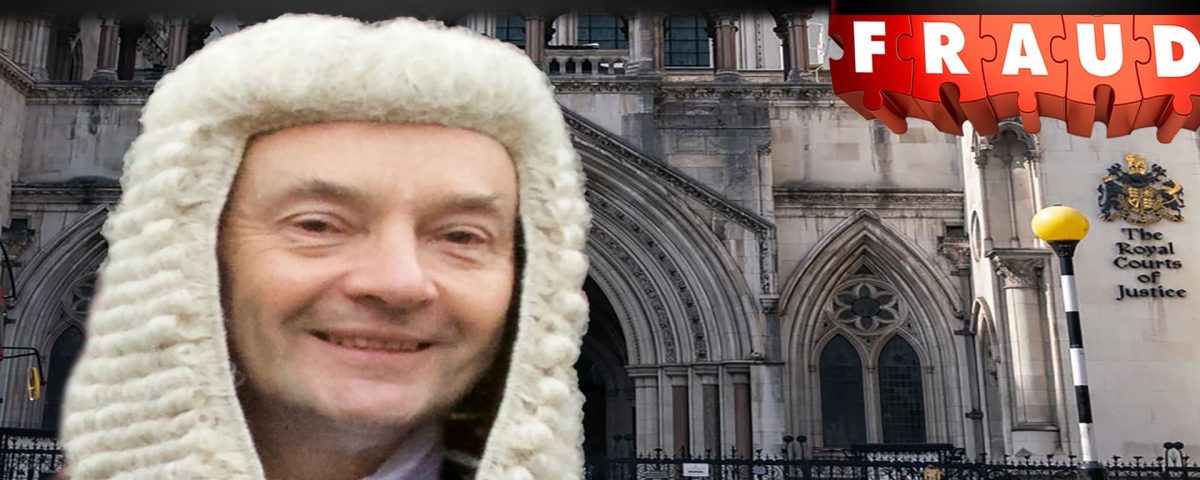
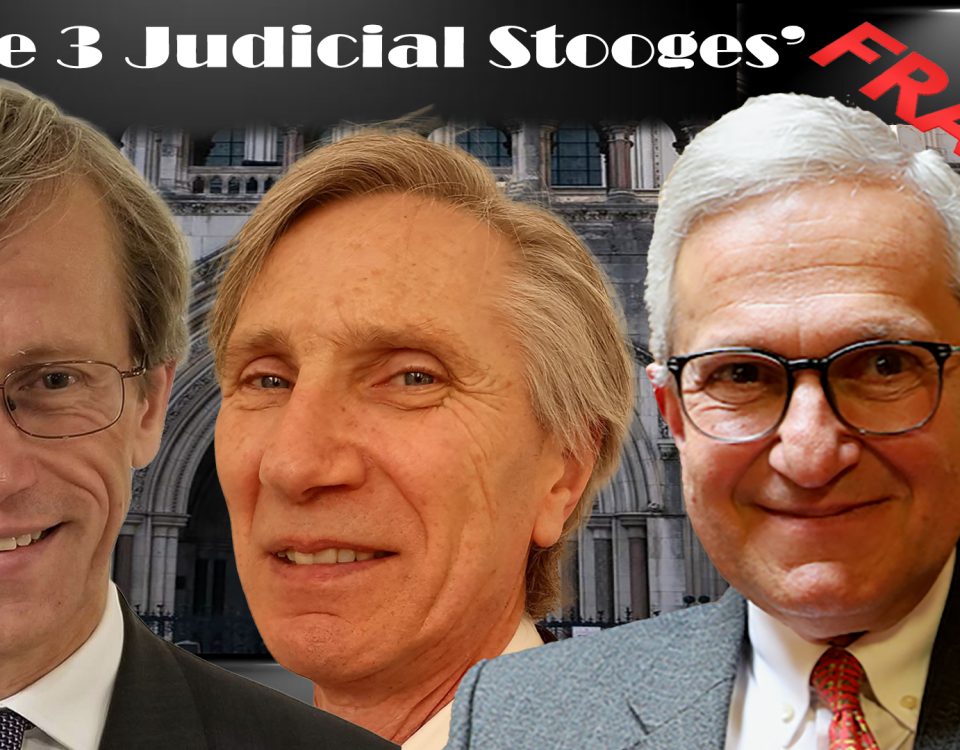
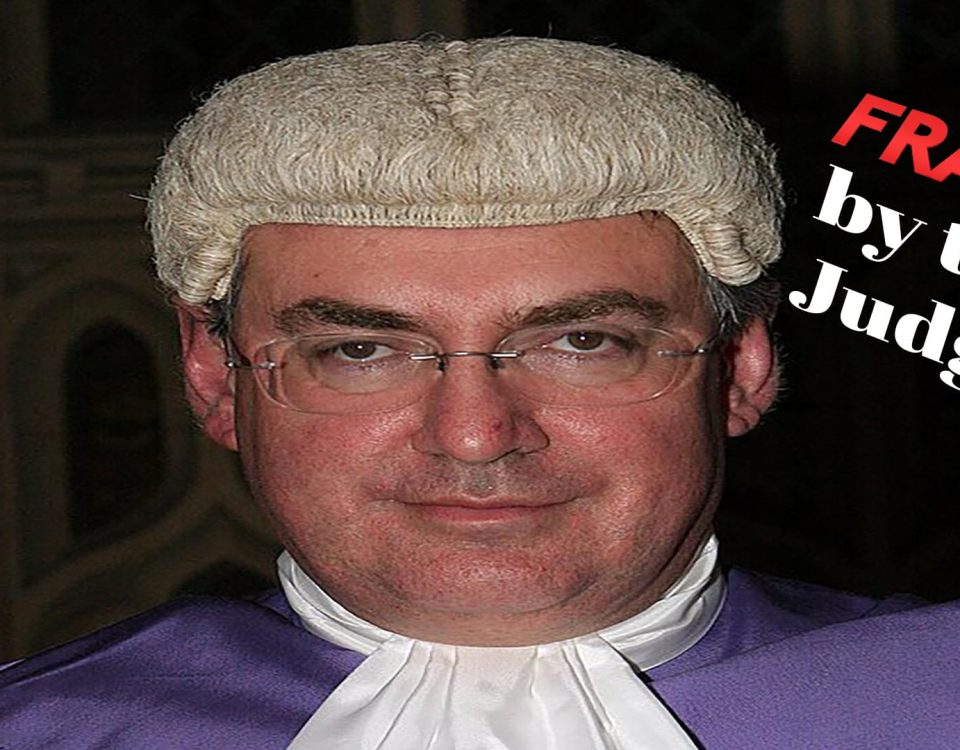
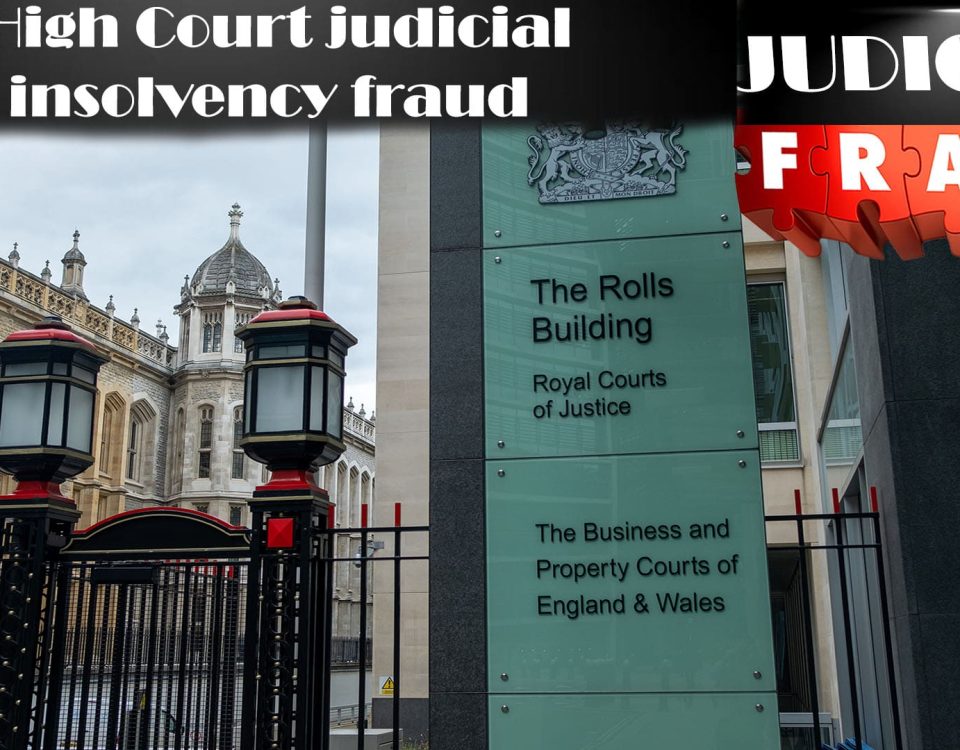


2 Comments
Scotland;s Judiciary, Police, COPFS and Lord President is rotten to the Core and as proven to have been bribed by Lloyds to break the Law, and also complicit in Land Registry Fraud where we have evidence of seizing property without a Warrant
Many thanks for your input Dave, we agree. We have overwhelming evidence of inter-agency collusion and many complaints from many different people about the Land Registry and Companies House maladministration and alleged fraud and falsification of crucial documents.